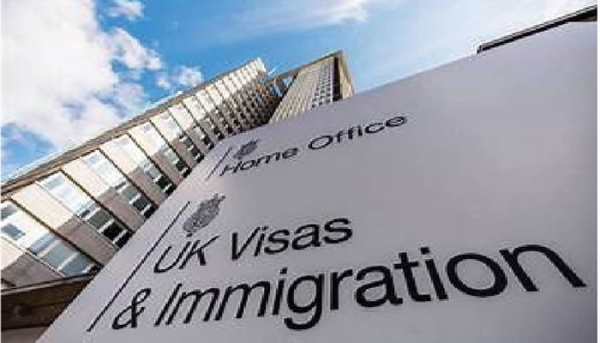The United Kingdom Government has unveiled a sweeping set of immigration reforms aimed at reducing net migration by around “100,000 people each year.”
The new Immigration White Paper released on Monday outlined changes across work visas, international study, asylum policy, enforcement, and long-term settlement.
One of the most significant changes is that “Legislation will be brought in to make clear that the Government and Parliament – not courts – determine who should stay, tackling misuse of Article 8 (right to family life) to block deportations.”
In a move to limit work-related migration, skilled workers will now need university-level qualifications, and the salary thresholds required for visas will increase.
“The Immigration Skills Charge – paid by sponsors – will rise by 32 percent for the first time since 2017, in line with inflation,” it added.
A major change affects the social care sector, with overseas visas being closed to new applicants.
The paper noted, “Social care visas will close to new overseas applicants; people already in the UK with work rights can extend or switch visas until 2028, subject to review.”
The Government will also establish a new Labour Market Evidence Group to guide immigration decisions based on stronger data. Sectors heavily reliant on overseas labour will be required to submit workforce strategies showing how they plan to hire and train more British workers.
Under the new system, “Key sectors that rely heavily on overseas recruitment will face new requirements to produce workforce strategies
“A Temporary Shortage List will be introduced to give time-limited access to the Points-Based immigration system for roles below RQF level 6
“Only jobs facing long-term shortages and backed by the Migration Advisory Committee will qualify for the above – if there’s also a workforce plan and employers commit to hiring more UK workers.”
The White Paper includes provisions to allow skilled refugees and displaced people recognised by the UN to apply for work visas. Additionally, the UK will open more routes for highly skilled workers and top global talent to enter the country.
Changes to student immigration include reducing the post-study work visa from two years to 18 months. Universities could also face a levy on the income they receive from international students, with the money redirected to fund domestic skills training.
“Graduates will be able to stay in the UK for only 18 months after their studies, compared to current period of two years.
“A levy on income from international students is being considered, with the money potentially going towards domestic skills training
“Sponsoring institutions will face tougher requirements to be allowed to recruit international students
“The pass mark for compliance metrics will rise by 5 percent, meaning sponsors must now have at least a 95 percent course enrolment rate and 90 percent completion rate,” the paper stated.
In response to concerns about illegal immigration and criminality, foreign nationals convicted of crimes even if not imprisoned could now be deported under new thresholds. There will also be tougher enforcement against those who claim asylum without credible evidence of risk in their home country.
The Government will introduce digital IDs known as eVisas to replace physical biometric residence permits, making it easier to monitor migrants’ legal status. More resources will be devoted to cracking down on illegal work, especially in gig economy sectors.
Further measures to improve integration and community cohesion include raising the required level of English proficiency for most visa applicants. The settlement period for most migrants will be extended from five to ten years, although faster routes will remain for those who contribute significantly to the UK economy or society.
The White Paper confirmed that family members of British citizens can still settle in five years and protections remain in place for victims of domestic abuse. The Government also plans to support young people who have grown up in the UK without legal status, especially those in care.
“Those making strong contributions to the UK economy or society could qualify for faster settlement and citizenship. Family members of British citizens can still settle in the UK after five years, and protections remain for domestic abuse victims
“Parents of British or settled children who die will be allowed to stay in the UK permanently right away
“The Life in the UK test (which people must pass to become British citizens or settle permanently) will be reviewed and improved, and costs of applying for British citizenship could be reduced for young people who’ve lived in the UK for most of their lives
“Young people who’ve grown up in the UK without legal status will be helped to stay permanently, with extra support for those in care or leaving care,” it concluded.


